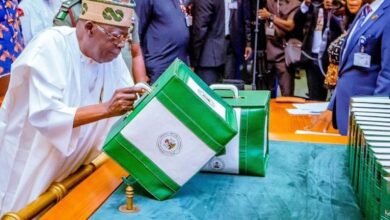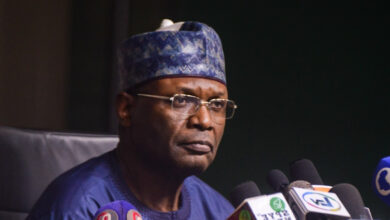The Burden Of Persistent Fuel Price Hikes On Nigerians

The persistent hike in fuel prices continues to burden Nigerians, exacerbating an already struggling economy. With the removal of the petroleum subsidy last year, fuel prices have soared, leaving the masses to bear the brunt as petroleum marketers charge varying prices across the country. The inconsistencies in pricing, often ranging between N890 and N1,000 per litre in different cities, have severely impacted the cost of living, making daily survival an uphill battle for many.
For ordinary Nigerians, every fuel price increase sets off a chain reaction—transportation costs rise, food prices soar, and the overall cost of goods and services skyrockets. As wages remain stagnant, the purchasing power of citizens continues to erode, pushing more people into financial hardship. The ripple effects of these price hikes are clear: families are struggling to afford necessities, and businesses are grappling with rising operational costs. Despite this, the government seems indifferent, failing to introduce measures to alleviate the burden on the population.
President Bola Tinubu had previously promised that savings from the removal of the fuel subsidy would be reinvested into critical sectors like education. However, many Nigerians see no tangible benefits from this decision. Instead, they face daily challenges of rising inflation and poverty. There is growing frustration and resentment as the government has yet to implement policies that would ease the economic strain caused by the hike in fuel prices.
Nigerians are questioning what the president’s “renewed hope” agenda truly represents. The lack of proactive measures to stabilize fuel prices or provide relief suggests a disconnect between the government and the realities faced by the people. Instead of economic relief, many fear that the situation may worsen, with predictions that fuel prices could rise to N1,500 per litre or more, further complicating an already dire situation.
The current trajectory has led many to doubt whether the administration has the political will or the vision to address the country’s economic woes. As poverty deepens, and inequality widens, the lack of targeted, people-centered programs to reduce economic suffering only aggravates the frustration among Nigerians.
The government’s silence and inaction in the face of this economic crisis have left citizens disillusioned. With inflation rising daily and fuel prices spiraling out of control, there is an urgent need for President Tinubu’s administration to act decisively. Immediate steps must be taken to stabilize fuel prices, provide economic relief to struggling households, and implement long-term strategies to reduce Nigeria’s dependence on volatile global oil markets. Without these measures, the suffering of ordinary Nigerians will continue to worsen.
For millions of Nigerians, this is not just about fuel prices; it’s about survival. The government must urgently address this growing crisis before the nation’s economic and social stability is further eroded. The people deserve policies that reflect their struggles and provide hope for a better future, rather than the current trend of economic hardship amid the country’s abundant resources.



